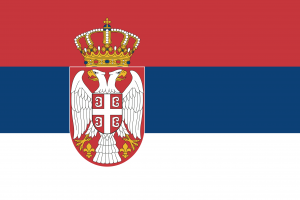Language/Serbian/Grammar/Nouns:-Gender-and-Number/az
 Հայերէն
Հայերէն Български език
Български език 官话
官话 官話
官話 Hrvatski jezik
Hrvatski jezik Český jazyk
Český jazyk Nederlands
Nederlands English
English Suomen kieli
Suomen kieli Français
Français Deutsch
Deutsch עברית
עברית हिन्दी
हिन्दी Magyar
Magyar Bahasa Indonesia
Bahasa Indonesia فارسی
فارسی Italiano
Italiano 日本語
日本語 Қазақ тілі
Қазақ тілі 한국어
한국어 Lietuvių kalba
Lietuvių kalba Νέα Ελληνικά
Νέα Ελληνικά Şimali Azərbaycanlılar
Şimali Azərbaycanlılar Język polski
Język polski Português
Português Limba Română
Limba Română Русский язык
Русский язык Español
Español العربية القياسية
العربية القياسية Svenska
Svenska Wikang Tagalog
Wikang Tagalog தமிழ்
தமிழ் ภาษาไทย
ภาษาไทย Türkçe
Türkçe Українська мова
Українська мова Urdu
Urdu Tiếng Việt
Tiếng ViệtGender and Number in Serbian Nouns[redaktə | mənbəni redaktə et]
Welcome to the Serbian Grammar course! In this lesson, we will cover the gender and number system used in Serbian nouns. Understanding these concepts is essential to building a strong foundation in the language.
Gender in Serbian Nouns[redaktə | mənbəni redaktə et]
In Serbian, nouns are divided into three genders: masculine, feminine, and neuter. Unlike English, which only has natural gender, Serbian nouns can have grammatical gender, which is not necessarily related to the biological sex of the object to which it refers.
For example, the Serbian noun "kuća" (house) is feminine, regardless of whether the house is owned by a man or woman. Similarly, the noun "sunce" (sun) is neuter, even though the sun is often associated with masculinity in English.
Below is a table of examples of Serbian nouns in different genders:
| Serbian | Pronunciation | North Azerbaijani |
|---|---|---|
| kuća (house) | /kuːt͡ʃa/ | ev |
| knjiga (book) | /kɲiɡa/ | kitab |
| sunce (sun) | /sunt͡se/ | günəş |
As you can see, each noun has its own gender, which must be memorized when learning Serbian.
Number in Serbian Nouns[redaktə | mənbəni redaktə et]
In addition to gender, Serbian nouns also have two numbers: singular and plural. Singular refers to one object, while plural refers to more than one.
To form the plural of a Serbian noun, several rules apply. Here are the most common ones:
- If the noun ends in a consonant, add "-i" for masculine and neuter, and "-e" for feminine
- If the noun ends in "-a", add "-e" for all genders
- If the noun ends in "-o", add "-vi" for masculine and neuter, and "-a" for feminine
- If the noun ends in "-e", add "-vi" for masculine and neuter, and "-i" for feminine
Here are some examples of Serbian nouns in singular and plural:
| Serbian | Pronunciation | North Azerbaijani |
|---|---|---|
| kuća (house) | /kuːt͡ʃa/ | ev (singular) / evlər (plural) |
| knjiga (book) | /kɲiɡa/ | kitab (singular) / kitablar (plural) |
| sunce (sun) | /sunt͡se/ | günəş (singular) / günəşlər (plural) |
As you can see, the plural form of each noun follows the rules outlined above.
Conclusion[redaktə | mənbəni redaktə et]
Congratulations! You have learned about the gender and number system in Serbian nouns. Keep practicing and memorizing the gender and plural forms of different nouns, and you will be one step closer to achieving proficiency in Serbian.

